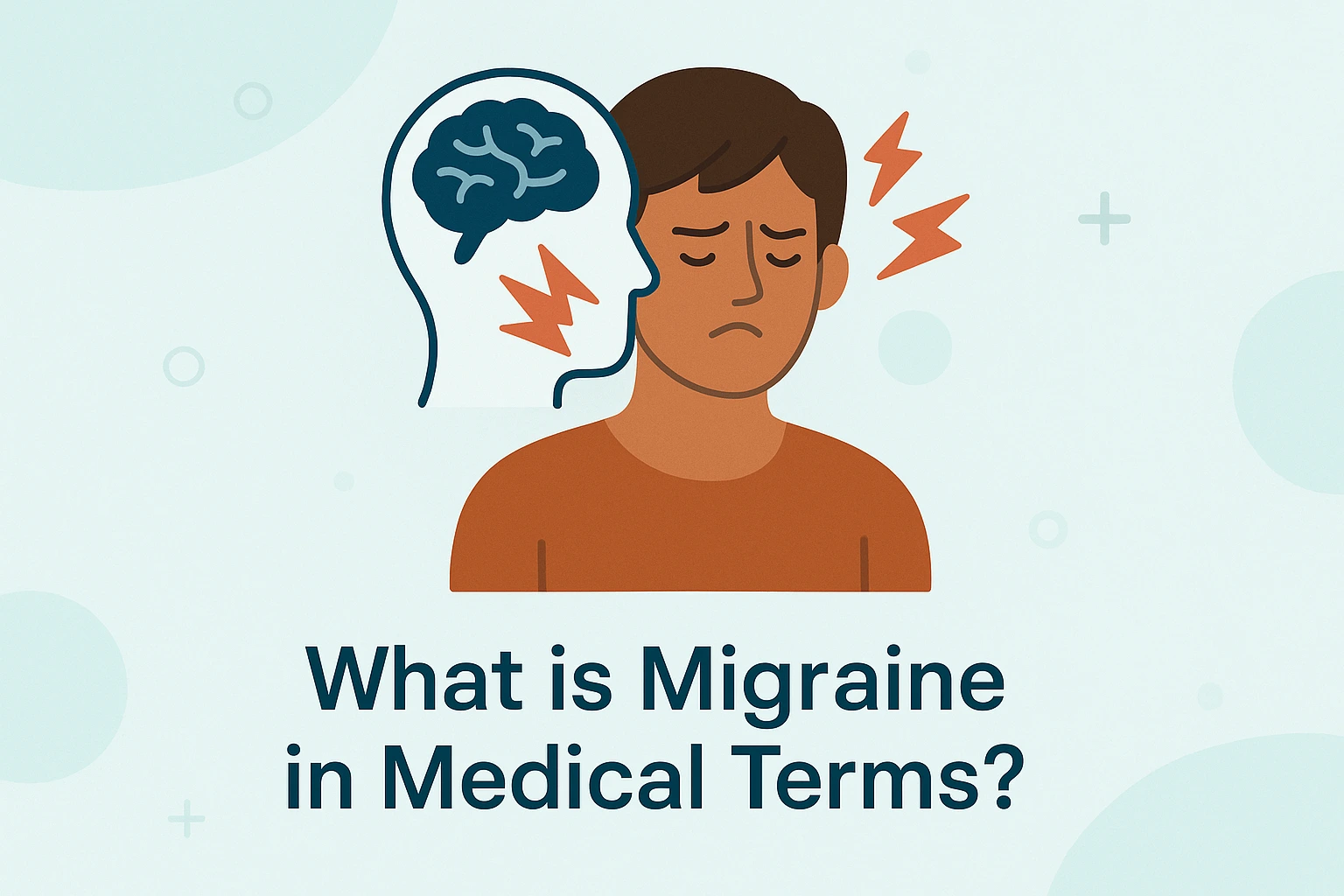A migraine is a neurological condition characterized by severe, recurring headaches that are often accompanied by other symptoms such as nausea, vomiting, sensitivity to light (photophobia), and sound (phonophobia). Unlike common headaches, migraines typically involve intense, throbbing pain on one side of the head and can last anywhere from a few hours to several days.
If you experience frequent migraines, or if your migraine symptoms worsen or change over time, it’s important to consult a healthcare professional. A proper diagnosis and treatment plan can help reduce the severity and frequency of migraines, improving your overall quality of life.

Types of Migraines
- Migraine without Aura: This is the most common type of migraine, where the headache is the main symptom, typically on one side of the head. It is often accompanied by nausea and sensitivity to light and sound.
- Migraine with Aura: Aura refers to sensory disturbances that occur before or during the headache phase. Symptoms may include visual disturbances (such as flashing lights or blind spots), tingling in the face or limbs, and difficulty speaking.
- Chronic Migraine: A condition where migraines occur 15 or more days per month for at least 3 months. This type can be severely debilitating.
- Hemiplegic Migraine: A rare and severe form that causes temporary paralysis or weakness on one side of the body, along with headache symptoms.
Symptoms of Migraine
Symptoms of migraine include a variety of experiences that differ among individuals.
- Severe, throbbing headache
- Nausea or vomiting
- Increased sensitivity to light or sound
- Visual disturbances, such as aura
- Fatigue or irritability
Causes of Migraine
Common causes and risk factors for migraine include changes in brain activity or blood flow.
- Hormonal changes, particularly in women
- Stress or anxiety
- Dehydration or fasting
- Environmental factors, such as heat
- Long-haul travel
When to See a Doctor Migraine?
Seek medical advice for migraine if you experience unusual symptoms. These include a sudden severe headache, fainting, chest pain, or confusion. Such symptoms could indicate a more serious condition needing immediate attention.
Related Terms of Migraine
FAQs for Migraine
When should I go to the ER for migraine?
If you experience severe headache, confusion, or any symptoms indicating a stroke, seek emergency care immediately.
Can heat and dehydration trigger migraines?
Yes, in hot climates like the UAE, dehydration and heat can be potential triggers for migraine episodes.
How can I reduce my risk of migraines?
Maintaining hydration, managing stress, and avoiding known triggers can help reduce the risk of migraine.
